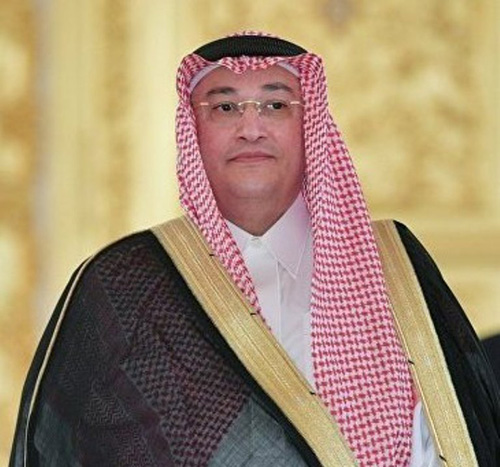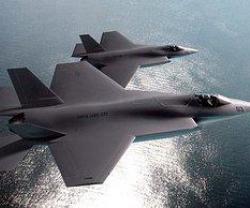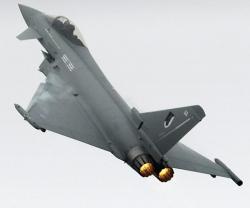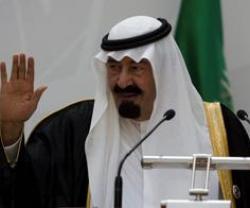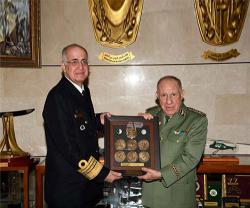In early October 2017, King Salman bin Abdul-Aziz paid an official visit to Russia, the first by a Saudi monarch.
A number of deals have been signed during this trip, including an agreement to buy Russian S-400 surface-to-air missile systems.
Both countries also signed a Memorandum of Understanding (MoU) to help the Kingdom in its efforts to develop its own military industries, a statement from state-owned Saudi Arabian Military Industries (SAMI) then said.
SAMI said the MoU with Russian state-owned arms exporter Rosoboronexport came in the context of contracts signed to procure the S-400, the Kornet-EM system, the TOS-1A, the AGS-30 and the Kalashnikov AK-103. It did not specify the number of each system or the value of the procurement deal.
It said the procurement was “based on the assurance of the Russian party to transfer the technology and localize the manufacturing and sustainment of these armament systems in the Kingdom,” but provided no timeframe.
On the sidelines of the St. Petersburg International Economic Forum (SPIEF) which took place on 24-26 May 2018, Saudi Ambassador to Russia Rayed Krimly (photo), in an interview with Sputnik journalist Anastasia Dmitrieva, commented on the strong Saudi participation at SPIEF and the Saudi-Russian defense cooperation.
“Saudi Arabia had a very large delegation at SPIEF due to our good relations with Russia and the importance of the event. Mr. Al-Falih, Minister of Energy, was the Head of our delegation, which also included also the President of the Saudi Public Investment Fund and the various representatives of the Saudi Arabian General Investment Authority, in addition to Saudi Aramco and influential Saudi businessmen,” Krimly said.
“We also had a nice Saudi wing explaining important reforms regarding making Saudi Arabia attractive for investments, easing doing business, helping investors to have all permits in matters of hours from all agencies, speeding up all necessary procedures and explaining incentives, both financial and legislative, that are offered to foreign investors. Saudi Arabia is ready for business and this is a major part of the Saudi Vision 2030. We have to increase our reliance on new investments to compensate for our dependence on oil revenues,” he noted.
“At SPIEF, we signed a MoU with a Russian airplane manufacturer and others were discussed indeed. This is between various agencies. At the official level, Mr. Al-Falih had very constructive talks with the Russian Minister of Energy Alexander Novak as they are continuing their consultations. They see each other quite frequently now,” he added.
On the Saudi-Russian military relationship, the Saudi Ambassador said: “We have a very important cooperation in military affairs, not only in military purchases and industrialization inside Saudi Arabia in some components of military deals, but also in terms of sending our Officers to be trained and schooled in Russian military academies for the first time.”
“We have almost 200 Saudi military personnel studying in various cities in Russia. This was agreed two years ago. As you know, this qualitatively different stage of our bilateral relations with Russia started with several visits of the Saudi Crown Prince to Russia starting from 2015 and culminated in the historic visit of the King Salman to Moscow.”
On the latest update on Saudi Arabia’s purchase of Russian S-400 systems, Krimly said: “We are still continuing technical details of the agreement. We signed the contract during the King’s visit, what is now happening is the implementation requires technical details of technology transfers, other technical details between experts of both sides.”
“It is no secret that Russia’s Rostec already opened an office in Saudi Arabia. We moved ahead with 3 other agreements because they were simpler in nature. But we expect movement in this agreement. Experts need to finish their discussions, we can’t put a date for the end of discussions, but it is proceeding in a very positive manner,” he concluded.

